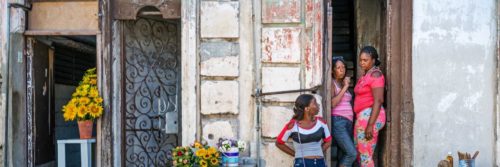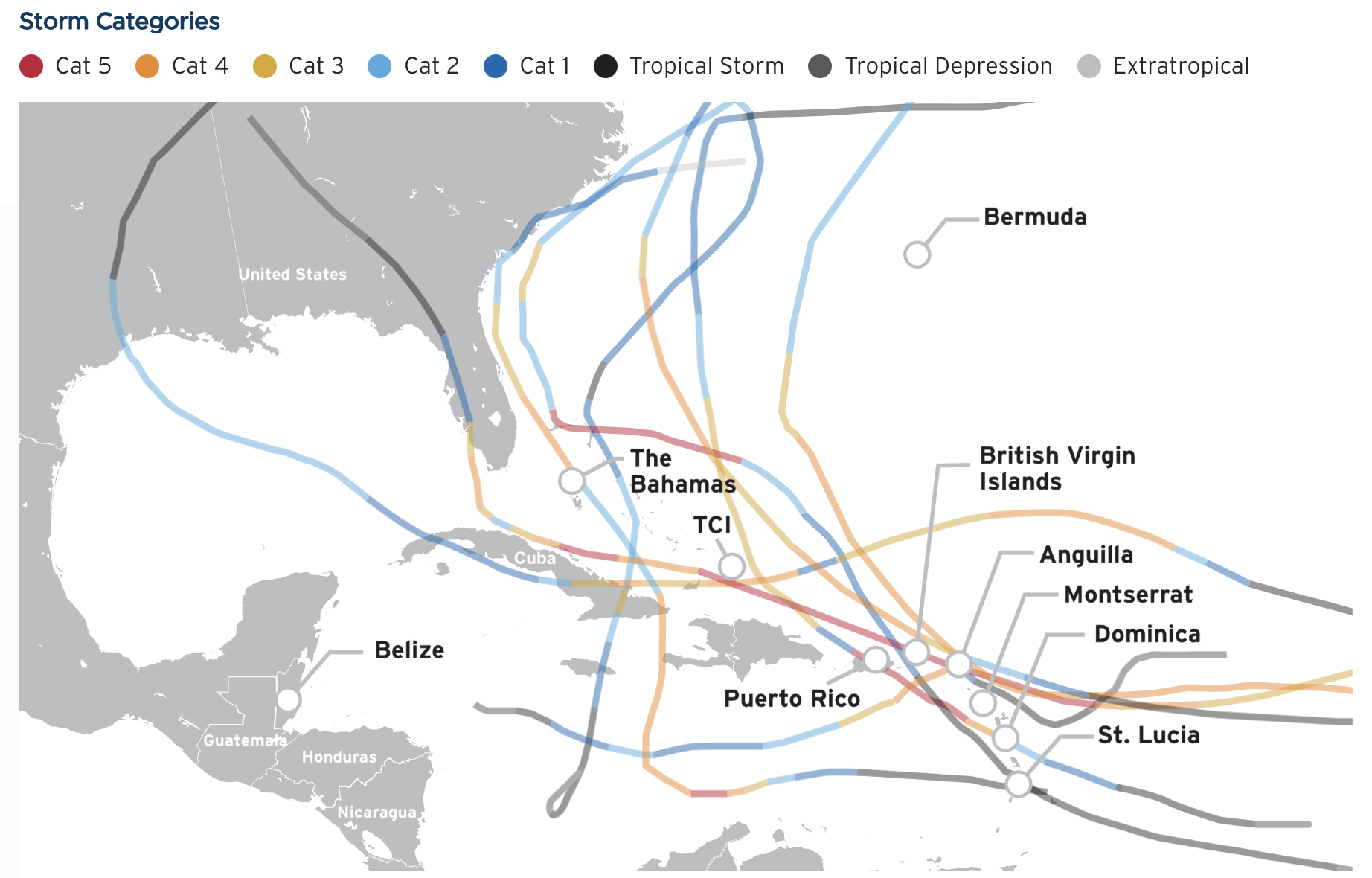Major hurricanes devastate islands' energy systems, causing large-scale outages and jeopardizing community livelihoods. Scroll over the hurricane paths and click on each island to see how it is responding to climate change inequities with scalable solutions for a just, resilient energy future.
Anguilla — Rebuilding Stronger, Together
In 2017, Anguilla was devastated by Hurricane Irma. Former CEO of the Anguillan utility and RMI Principal David Gumbs shares how support from neighboring islands coupled with investing in microgrids play a critical role in rebuilding stronger after the Category 5 hurricane.
Puerto Rico — Resilient Microgrids for Just Education
After Hurricanes Irma and Maria devastated Puerto Rico in 2017, many schools were without power for six months. Now 400 faculty members and 3,600 students in low-income Puerto Rican communities have access to clean, resilient power through solar microgrids.
The Bahamas — Energy for the Most Vulnerable: 14 Football Fields in Size
After Hurricane Dorian, the low-income Marsh Harbour community experienced life-threatening conditions far beyond those of other Bahamians due to less resilient housing conditions and flood-prone areas. Bahamas Power and Light Company and RMI designed a solar-plus-storage microgrid to ensure reliable energy and restore livelihoods to the decimated community.
Turks & Caicos Islands — Crafting an Equitable Energy Transition Strategy
When the Turks and Caicos Islands (TCI) were developing their Resilient National Energy Transition Strategy, they relied heavily on community outreach. The utility and government jointly held community discussions at on multiple islands to ensure inclusion of diverse community perspectives.
Belize — Celebrating Indigenous Energy Leaders
In Belize, an NGO promotes the demonstration, development, and transfer of solar technologies in two villages that have no access to the national electric grid. Two women from these villages received solar energy training and now operate successful small business enterprises providing solar energy systems to the community.
Bermuda — Pioneering an All-Electric Public Transit System
The Government of Bermuda is replacing 30 aging diesel buses with electric buses, more than one-third of the total public bus fleet. These buses are helping the island make zero-emissions commutes a reality for all.
Monserrat — Halfway on the Road to 100% Renewables
Residents of Montserrat pay some of the highest rates of electricity in the world. RMI is working the government to redesign and rebuild the entire energy system to make it more resilient and less costly. And this past August, the small Caribbean Island reached 50 percent renewable energy.
Dominica — Knowledge is Power: Community Outreach for a Renewable Future
Hurricane Maria destroyed more than 90 percent of the structures on Dominica in 2018, leaving 18,000 students without access to their schools. Now, RMI is partnering with Clara Lionel Foundation to bring consistent energy to two preschools on the island—prioritizing community education to scale project impact.
St. Lucia — Social Change for Climate Change
Small islands played a big role in negotiating 1.5°C in the Paris Agreement. Saint Lucia led the negotiations for CARICOM—a grouping of 20 countries throughout the Caribbean. The small island was also the first Caribbean country to sign a nationally determined contribution.
British Virgin Islands — Resilience Through Local Resources
After the devastating impacts of Hurricanes Irma and Maria, the British Virgin Islands are building back stronger with a renewable energy microgrid at Paraquita Bay. This will provide resilient energy to the community college, which also functions as a hurricane shelter, and water treatment facilities.

